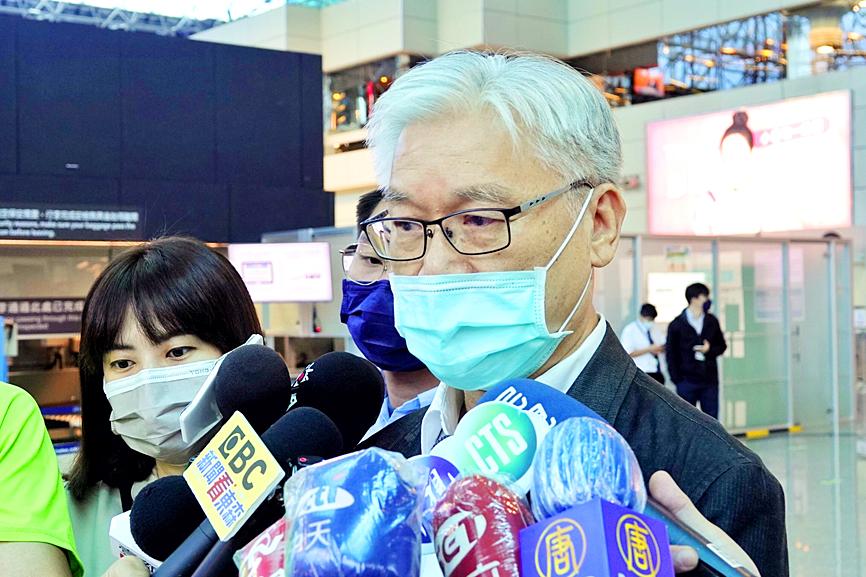Chinese Nationalist Party (KMT) Vice Chairman Andrew Hsia (夏立言) yesterday left with a delegation for a trip to China, drawing fire for visiting at a time when Beijing has been conducting intensive military drills to pressure Taiwan.
Before boarding, he told reporters that the delegation would be visiting Taiwanese communities and students in China, and possibly meet with Chinese officials.












